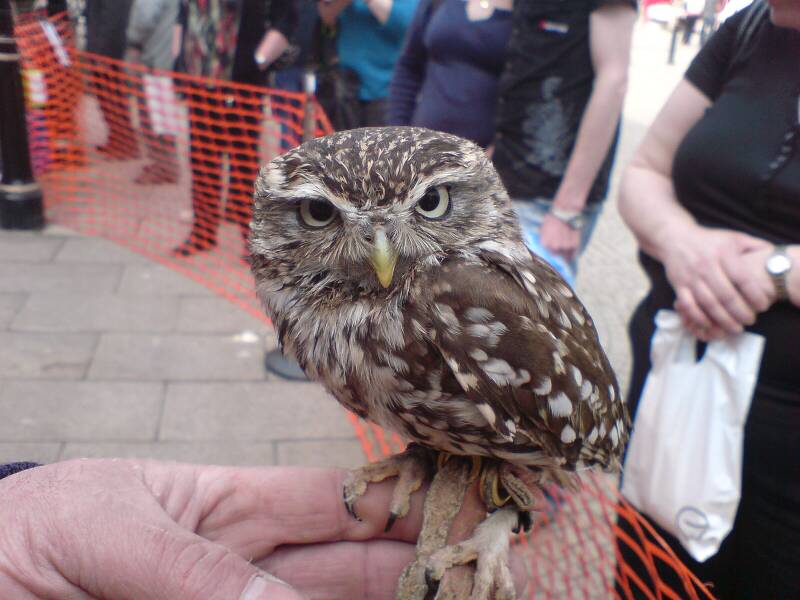
Same image, further back. Did the size deceive you?
Small but fierce, this is an adult Athena's Owl, (Athene noctoa), also known as "the little owl"

The Athenian Owl

This little owl was the favored bird of Athena, a Greek goddess associated with Philosophy and Wisdom. It was seen as a protector of Athens, featured on the city's coins dating back as 500 BCE.
For Rational Hedonists, the owl represents mental clarity and discerning truth, navigating through the darkness of superstition, media bias, misinformation, coverups, censorship, and now, AI illusions. We do not mindlessly accept consensus, trendy social issues or partisan opinions, but clarity in evidence.
Its ability to swivel its head around 270° represents the flexibility to see from various angles, be able to listen to opinions , yet have the honesty to adapt your own beliefs and opinions in light of new evidence.
The owl is our reminder to remain alert and informed, to question rather than merely accept, and at times, have the courage to question and debate the status quo.

Athenian Owl Coins


These coins were first created around 490 BCE and circulated for hundreds of years. Democritus, Aristippus and Epicurus used these coins. Athena is featured on the front, with her owl, an olive sprig and small crescent moon on the back. The coins were actually called "owls".
Believe it ... Or Not
This symbol of the Hellenic Empire and Glory of Greece has been transplanted onto the American one dollar bill, hidden in plain sight.*


There is a little owl tucked away on the U.S. dollar that mostly goes unnoticed. Some dismiss it as part of a background design element, and for a few, it's part of a conspiracy theory. Yet its presence subtly acknowledges ancient Greek connections with the goddess Athena's owl, a symbol of wisdom, foresight and knowledge.
Many of America's Founding Fathers were educated in Greek philosophy and influenced by Enlightenment thought. Their vision for this experimental new nation was inspired by classic Greece, evident in the Athenian revival architecture, friezes and statues in Washington D.C.
Thomas Jefferson, who called himself an Epicurean, rewrote the opening lines of the Declaration of Independence, changing the words from “life, liberty, and property” (influenced by John Locke) to instead reflect the Epicurean goal of the "pursuit of happiness".
Just as the owl remains hidden in plain sight, so too is Epicurus’ role as an unseen influencer of American ideals. His philosophy, over 2,000 years old, was transplanted into the newly forming U.S., shaping a nation built on self-determination, personal liberty, and the right to pursue happiness—a stark contrast to the rigid structures of Aristotelian and Platonic societies.
*Yes, this is a bit tongue-in-cheek

